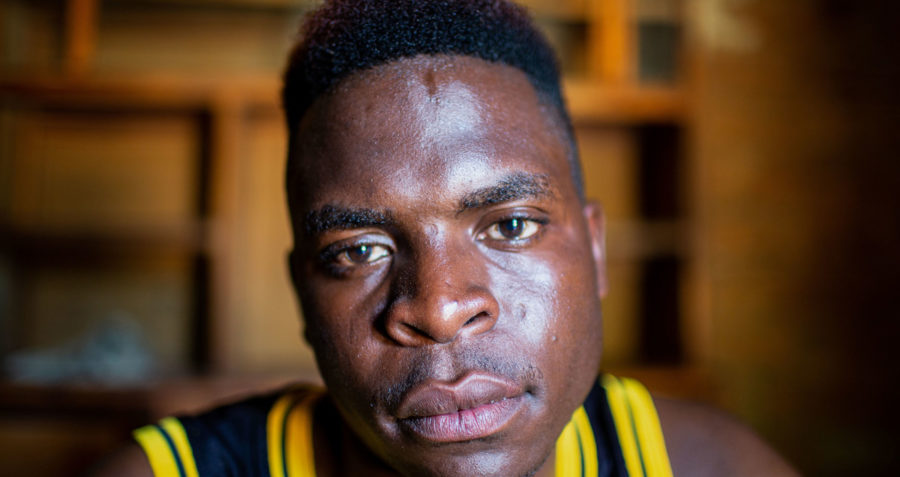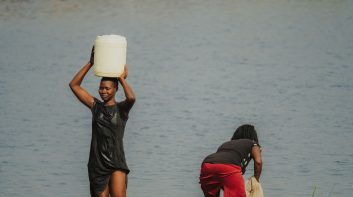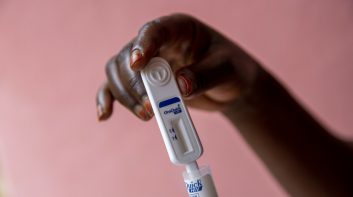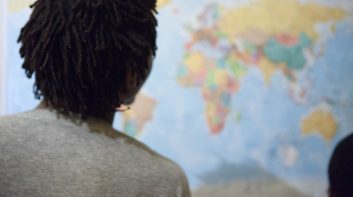How to bust stigma during a pandemic
 © Frontline AIDS/Tony Kawimbe/Arete/2020
© Frontline AIDS/Tony Kawimbe/Arete/2020
In Zambia, DZL has witnessed an increase in stigma and discrimination during the COVID-19 pandemic, and is redoubling its efforts to support communities who are marginalised and affected by HIV.
“HIV is just a normal disease like malaria, like diabetes, these people also take their drugs every day,” says Bridget Kandela, a nurse with the Zambia Health Education and Communications Trust (ZHECT).
Her work with people living with HIV and with members of the lesbian, gay, bisexual and transgender (LGBT) community has made her passionate about tackling the discrimination that so many of them face on a daily basis.
HIV is not a death sentence
“They [people living with HIV] are normal like any other person living with hypertension or diabetes,” she says.
ZHECT works hand in hand with Dignitate Zambia Limited (DZL) – a Frontline AIDS partner and recipient of a COVID-19 Emergency Fund grant – to support Zambian communities most affected by HIV. This includes providing antiretroviral treatment, pre-exposure prophylaxis, condoms and lubricants, counselling or assistance in the event of human rights violations.
“I love what I do,” Bridget declares. “For those people who lack knowledge, I educate them. For those who feel like they want to give up on life [because of their HIV status], I counsel them so that they have a better understanding. I tell them that living with HIV is not a death sentence and assure them that there is hope.”
Identity politics
Because Zambia is still shackled by anti-LGBT legislation, some members of the community where Bridget works have had occasion to fear for their lives because of prevailing discriminatory attitudes.
Kapansa knows this fear all too well. She says: “I realised very early in my life that I was a transgender woman. From childhood, I didn’t have male friends, only female friends. That is how I have felt in my heart since I was a child. I am stigmatised and teased by people who point fingers at me and call me names. Some would call me boy/girl and many other bad names; some would insult me. At times when I go into town, they start shouting at me and saying that they will burn me. As a result, I am not free to move around. Instead, I start hiding.”
Ali, a young gay man, also has a distressing story about being targeted on the basis of his identity. “I am different because my feelings are feminine,” he says. “I noticed that I was different when I was in grade seven. One time, I was going home from school and a car stopped. The person in it took me to a room and pressured me to have sex for K700 [about £22], and I agreed. The person told me how to do it and that is how I found out that I am like this.”
Shocking levels of stigma
DZL has been working with LGBT communities for the past eight years and has since branched out to represent other marginalised populations including sex workers and people living with a disability.
Sarah Chirwa is head of admin and operations there. “LBGT people don’t experience the same level of equality as others,” she says. “The stigma that people living with HIV face still is quite shocking, considering there has been enough awareness and sensitisation around HIV. I still experience community members who are living with family members being told that because you are HIV positive, you need to have your own plate. It’s pretty sad. A lot of people associate being HIV positive with being gay, lesbian or a trans person, so the community is facing interlinked discrimination.
“DZL is working on legal reform, to achieve the decriminalisation of the law that makes it illegal to be a member of the LBGT community. We document human rights violations to see where we can step in. If it requires taking a legal route, we try to gain evidence. We have also made allies with different health care institutions for community members to go and access non-discriminatory services. To the individuals in the world who are HIV positive – you are not alone.”
A note of hope
Jomell is a young gay person living with HIV in Kabwe in Zambia’s Central Province, working as a peer promoter at ZHECT and is also a part-time sex worker. Jomell explains how, little by little, they are starting to see the results of the stigma-busting work carried out by DZL and ZHECT.
Jomell says: “Two years ago, it was kind of hard for us to enter a bar, because of the way we were dressed. We were not accepted by the community. There was a lot of stigma.
“But from what we learnt from DZL, there is a thing they call advocacy, and I think the more we talk to people about how we are, the more people will try to understand us. I think we are now being accepted by the community. A long time ago, when you just stood by the road, you could hear so many comments: ‘don’t do this, do that, go and dress properly.’ But now I am freer.
“DZL supported me in so many ways health-wise and with education as well. I have been taught a lot of things about awareness, and safety and security. It makes me feel like I am a human being and accepted by society.”
About our programme
Launched in April 2020, the Elton John AIDS Foundation’s COVID-19 Emergency Fund was set up to sustain HIV prevention and care for the most marginalised communities during the pandemic and is administered by Frontline AIDS. To date, the Fund has supported more than 43 organisations to reach those in the greatest need.
Further Reading
Tags
COVID-19COVID-19 Emergency FundHuman rightsLGBTLiving with HIVZambia





